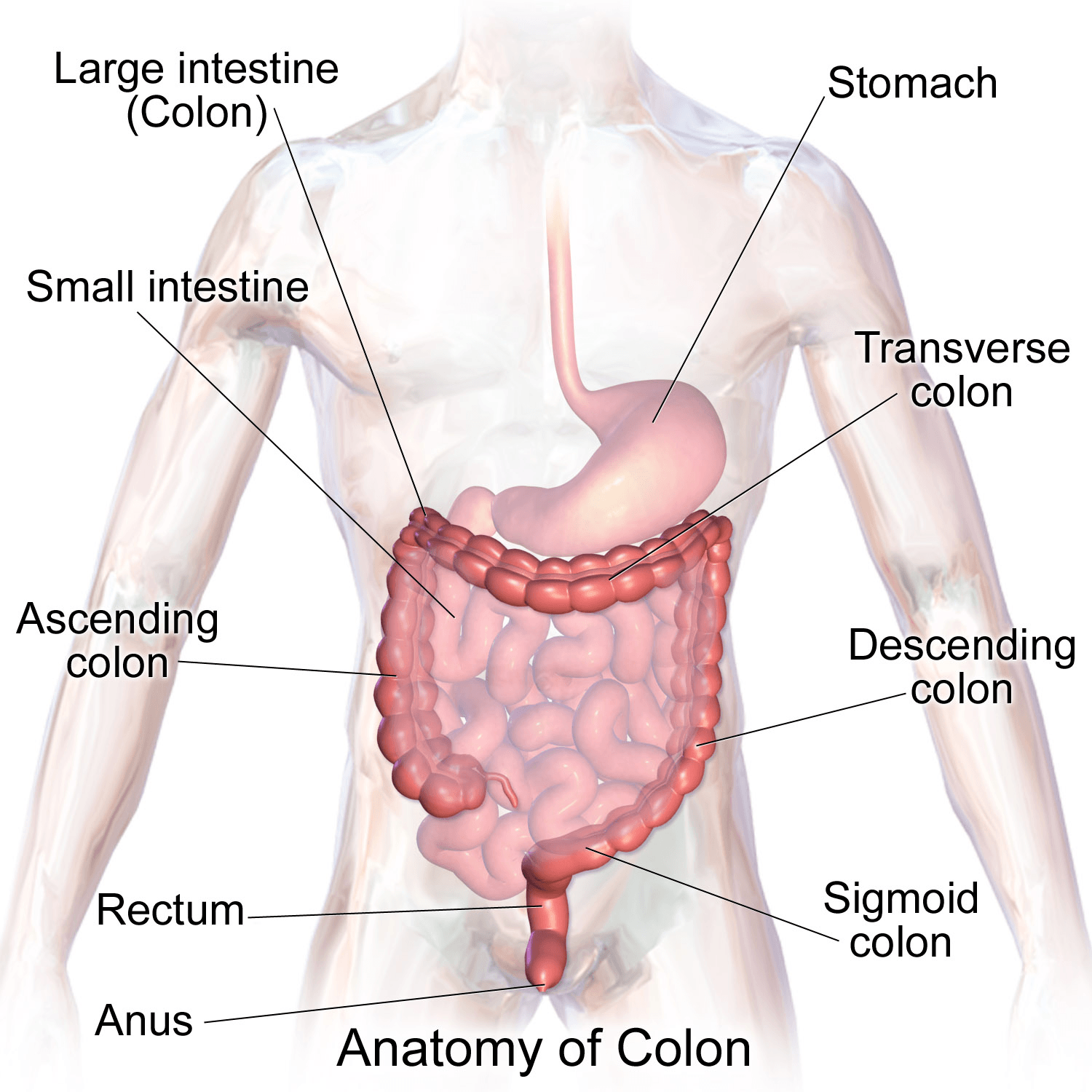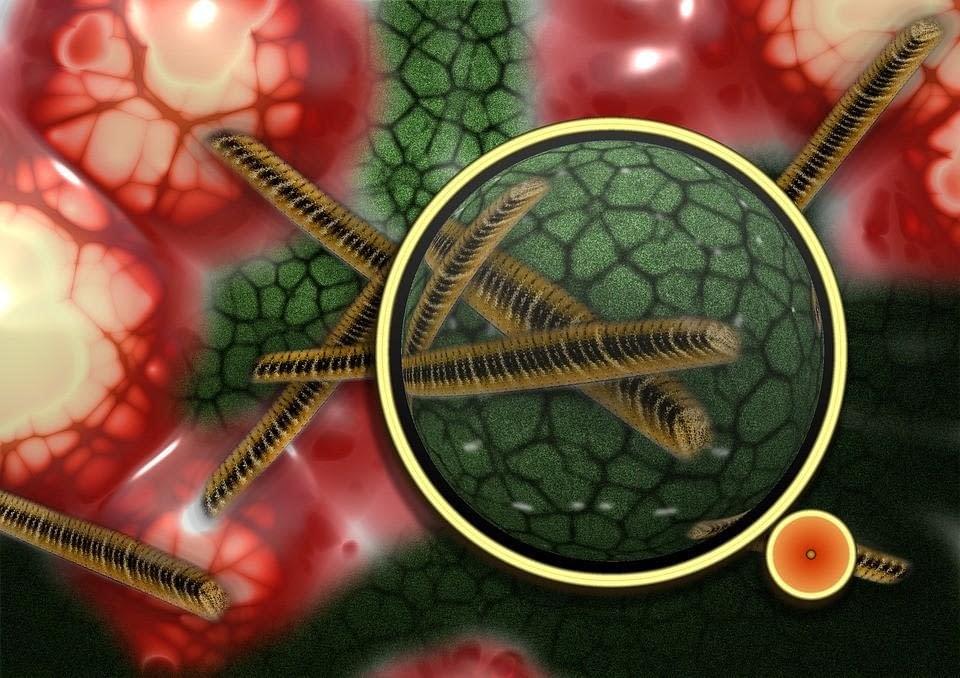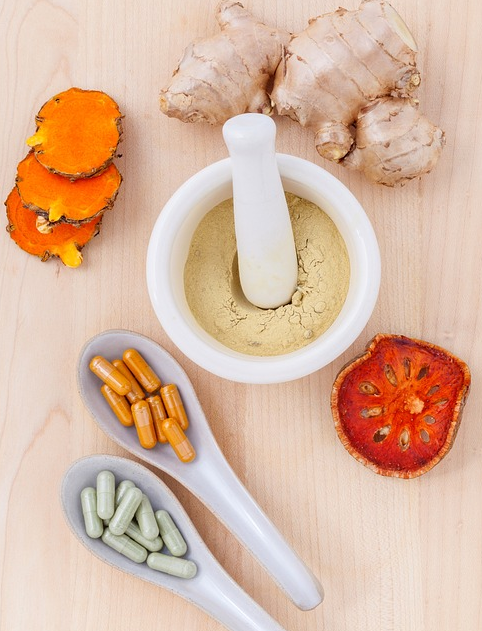Do you struggle with gas and bloating? Digestive distress? Fatigue? Less than ideal "Yule logs"?
It's possible you have SIBO, or Small Intestinal Bacteria Overgrowth.
To the estimated 5-20% of the population struggling with frequent gastrointestinal distress, doctors readily bestow the dreaded dietary label of "IBS." AKA: "We don't know what your problem is, so we'll just slap a syndrome label on it and call it a day." {Sigh} Such labeling, coupled with medical professional insistences that IBS is not "life threatening" like other illnesses, does us many IBS-ers a great disservice, insinuating the miserable gastrointestinal parade is a somewhat benign condition "all in the head," perhaps fixable with a decent dose of antidepressants. But IBS is far from that! The foundation of one's health lies in the gut, and when things get a bit wonky, it can lead to many (if not most) autoimmune conditions and degenerative disease.
Recent research indicates IBS may often be due to gut dysbiosis known as "Small Intestinal Bacteria Overgrowth," or SIBO for short. The go-to SIBO expert doctor is Mark Pimentel, Gastroenterologist at Cedars-Sinai Medical Center, and author of "A New IBS Solution: Bacteria-The Missing Link in Treating Irritable Bowel Syndrome" I recommend following his twitter for the latest on his updates. As I've been there/done that/do that with the whole SIBO thing, here's all the details!
WHAT IS SIBO?

SIBO refers to Small Intestinal Bacteria Overgrowth, and occurs when bacteria which should normally reside in the large intestine (colon) make their way up into the small intestine, which should be relatively sterile by comparison. Quick anatomy lesson! Your intestines are comprised of two basic parts: the small and large intestine. The small intestine is where food is fundamentally processed, and nutrients are absorbed. The large intestine is more of a storage unit for waste evacuation. It's sort of like the small intestine is the house, and the large intestine is the garage. We want lots of good bacteria in our large intestine, not our small intestine.
When bad bacteria, fungus, parasites, or even too much good bacteria start camping out in the small intestine like it's #theplacetobe, things quickly go awry. These nasties feed off of normally "healthy" fermentable carbohydrates, and release gas and toxic byproducts, leading to IBS's many potential digestive problems: burping, bloating, gas, constipation, diarrhea, etc. Those who often experience loose stools (aka: diarrhea) after eating (dubbed IBS-D or SIBO-D), likely harbor a population of bacteria which produce hydrogen gas. Those who are always backed up with constipation (dubbed IBS-C or SIBO-C), likely feature an overgrowth of the methane-producing Archaea organisms. (The methane actually serves as a sort of neurotransmitter which slows down the "migrating motor complex" and the cleansing peristaltic movement of the small intestine.)

Now here's the thing, the small intestine is where the foundation of your health lies. It's where you absorb nutrients and vitamins, and generate many neurotransmitters. A bacterial overgrowth can hinder nutrient absorption, and affect neurotransmitter production. The bacteria also release toxic byproducts when they ferment your food, which can result in fatigue, headaches, skin conditions, bowel problems, aches and soreness... basically everything!
An overgrowth of bacteria can also encourage intestinal permeability, or Leaky Gut. Ya see, food in your intestines is still "outside" of you, in a way. The cells which line the intestine are in charge of letting things in and out of your actual body. Toxins from bacteria (as well as anti-nutrients in food like gluten, lectins, and processed foods) can make the intestine more permeable, allowing food particles to enter the blood stream and create immune reactions. In a vicious cycle, an overgrowth of bad bacteria encourages intestinal permeability and deteriorating health, which encourages more bad bacteria. All of this contributes to failing health, autoimmune conditions, and degenerative disease.
In other words, when things begin going downhill in your gut, they tend to really go downhill. Like a rock teetering on the edge of a cliff, once it goes over the edge, well... you get the picture.
SIBO CAUSES
SIBO can start after an identifiable inciting incident, or may develop over months or years due to a variety of factors. All of the following can contribute or lead to SIBO:
- Antibiotics: The constant overuse of antibiotics today often kills the good bacteria along with the bad, wiping out our healthy gut flora. Antibiotics can render the intestines free real estate for bad guys to set up shop, while killing the good "police" bacteria which normally keep the villains at bay. Those antibiotics you take/took for at the slightest sign of a cold (which is often viral, not bacterial in nature anyways), or perhaps for acne (oh hey minocycline, doxycycline, and tetracycline!) may be doing way more long term harm than any short term good.
- Food Poisoning: People can ingest bad bacteria from infected food, or often while traveling in other countries. Common bacteria in food poisoning leading to SIBO include Salmonella, E. coli, Campylobacter, Shigella, and C. Difficile. These bacteria all contains toxins which can lead to nerve damage in the small intestine, hindering the small intestine's cleansing waves, and leading to a build up of bacteria.
- Stress: Stress isn't just an unpleasant mental state. Hormones and neurotransmitters involved in stress actively affect one's digestive state, since the gut is ripe in chemicals controlling the digestive process. Stress can also encourage leaky gut and inflammation (see below).
- Gut Irritants/ Leaky Gut: Intestinal permeability due to toxic food compounds (like grains and processed foods), as well as food allergies and intolerances, can lead to an ill-functioning digestive state more susceptible to SIBO.
- Dysfunctional Migrating Motor Complex: If the cleansing waves of the small intestine, known as the migrating motor complex, get "off," then food can sit around and ferment, encouraging a build up of bacteria. This can be due to everything from stress to a messed up vagus nerve to hypothyroidism to food intolerance to all of the above and everything else!
- Hypothyroidism: Hypothyroidism can lead to a reduced metabolic and digestive state, encouraging the build up of bacteria in the small intestine.
- And Much More 🙁
SIBO DIAGNOSIS

Sibo is "officially" diagnosed by lactulose breath tests, in which patients ingest a lactulose sugar water solution, then breath into bags for a few hours afterwards, in order to measure the presence of hydrogen or methane. The current "state" of one's SIBO is often determined by these hydrogen/methane levels, though the tests can yield false negatives or positives, and some people find they may have a negative breath test, yet still show symptoms. I'd wager many of the people in the 10,000+ SIBO FB group simply self-diagnosis themselves with SIBO, for better or worse.
TREATING SIBO
Treatment for SIBO ranges from pharmaceutical interventions to dietary plans. Some propose that SIBO is an incurable chronic condition, and once a person gets it, they must manage it for life. I'm not sure how I feel about that, since I believe our bodies harbor a beautiful, unique ability to heal. In any case, there does not seem to be an instant "cure all" for SIBO. Rather, the overgrowth must be effectively suppressed, the body nurtured, the good bacteria reinstated, and the initial contributing factors of SIBO (be it stress, inflammation, food intolerance, etc.) adequately addressed.
PHARMACEUTICAL TREATMENT
Rifaximin (Xifaxan)
The go-to pharmaceutical treatment for SIBO is Rifaximin, an antibiotic specific to the small intestine. Unlike other broad spectrum antibiotics, Rifaximin targets the small intestine only, and is not absorbed in the rest of the body. Many people experience a complete disappearance of symptoms on Rifaximin, though symptoms often return afterwards. Rifaximin is typically more effective in IBS-D rather than IBS-C, and is often combined with the antibiotic Neomycin in the case of IBS-C.
After Rifaximin, it is vital to follow a diet which does not encourage the overgrowth to resurface. Prokinetic agents are often key to keep the Migrating Motor Complex functions running, at least until the GI tract is effectively healed. Prokinetics can include foods like ginger, or compounds like LDN, discussed below.
I caution people to think seriously before taking Rifaxmin. Rifaximin personally made me much worse. Before Rifaximin, I only had occasional IBS (typically D) after occasional meals. After Rifaximin, I seemed to lose all my digestion resilience. I began experiencing bloating immediately after meals, and shifted into a constant IBS-C state. I became, in effect, a true SIBO-er. I say this not to scare you, but to encourage you to weigh the options before jumping in with the pharmaceuticals.
DIETARY TREATMENT
Dietary approaches to manage SIBO aim to minimize foods which encourage bacterial overgrowth. Though similar, they rely on slightly different principals.
Low Fodmap Diet
Developed by researchers at Monash University, the Low FODMAP diet stands for Fermentable Oligosaccharides, Disaccharides, Monosaccharides, and Polyols. FODMAPS are short-chained carbohydrates which are not easily absorbed in the small intestine, and are easily fermented by bacteria, causing gas and bloating. FODMAPS also support colonization of Clostridium bacteria in the large intestine, which further increases gassiness. Recent studies indicate FODMAPS "affect the gastrointestinal endocrine cells that regulate gastrointestinal sensation, motility, secretion and absorption, as well as local immune defense and food consumption." Many scientific studies show low FODMAP diets reduce bacterial fermentation, and improve the quality of life for IBS sufferers. Furthermore, a recent 2015 study confirmed Low FODMAP diets do not only reduce symptoms, but may furthermore favorably affect the composition of the gut microbiome.
Common types of FODMAPS include lactose, fructose, sugar alcohols (like sorbitol, maltitol, and xylitol) fructans and galactans. Various lists abound with low and high FODMAP foods, but high FODMAP foods include many grains, vegetables, fruits and legumes. Meat and pure fats (like butter, olive oil, coconut oil, etc.) are mostly FODMAP free.
Check out a Low FODMAP food list, or get this awesome Low FODMAP app.
Specific Carbohydrate Diet (SCD) Diet
The Specific Carbohydrate Diet was developed by Dr. Sidney Valentine Haas and has been popularized by Elaine Gottschall's "Breaking The Vicious Cycle". The SCD diet aims to heal damaged gut linings. It allows easily digestible monosaccharide carbohydrates (dubbed "legal" foods), and forbids disaccharides and polysaccharides complex carbohydrates (dubbed "illegal" foods). The diet is fairly "Paleo-esque" in nature. As noted on the Breaking The Vicious Cycle website, "The diet we evolved to eat over millions of years was predominantly one of meat, fish, eggs, vegetables, nuts, low-sugar fruits. Our modern diet including starches, grains, pasta, legumes, and breads has only been consumed for a mere 10,000 years."
Get more info on the Specific Carbohydrate Diet here.
GAPS Diets
The Gut and Psychology Syndrome (GAPS) Nutritional Protocol is a regimented tangent from the SCD diet. It is a progressive diet protocol broken into an Introduction of 6 stages (3-6 weeks) followed by the more lenient Full GAPs diet. The GAPS diet aims to completely heal and seal the gut lining, while starving bacterial overgrowth and slowly reintroducing good bacteria via fermented foods. The intro diet, for example, involves a period consuming just meat broths, well boiled meats, and a few select well-boiled veggies. Foods are gradually introduced until the full GAPS diet is reached, which is similar to the SCD diet.
Get more info on the GAPS diet here!
SIBO Specific Diet
The SIBO Specific diet was formulated by Dr. Allison Siebecker, an expert in the SIBO field. This diet essentially combines the Low FODMAP Diet and SCD Diet into one. I personally tend to abide by this list.
Check out the SIBO Specific Food Guide here.
Fast Tract Diet
Developed by Dr. Norm Robillard, The Fast Tract Diet assigns fermentation potential (FP) to foods, based on their carbohydrate, fiber, sugar alcohol, and Glycemic Index. The list bears some similarity to the Low FODMAP and SCD list, while greatly deviating in some areas (for example, asparagus and rice are high FODMAP but low FP, while on the flipside, collard greens are low FODMAP but high FP). A lot of people swear by the Fast Tract Diet, which deviates a bit from the other protocols, in allowing much wider variety of foods, as long as portions and Fermentation Potential is controlled. The Fast Tract Diet does not focus on healing the gut, but rather just focuses on reducing symptoms.
Get more info on the Fast Tract Diet, check out the App, or join the Facebook Group.
Cedars-Sinai Low Residue Diet
Developed by Mark Pimentel, the Low Residue Diet seeks to minimize foods which slow down digestion and hinder the cleansing waves of the small intestine. Unlike the Low FODMAP diet, the Low Residue diet actually discourages most veggies (except for below ground veggies, fruit-vegetables, and mushrooms), and encourages all fruits except for bananas, apples, and pears. It also allows potatoes, rice, and pasta. It also notably discourages probiotics.
Low Carb/ Ketogenic Diet
Many people find their symptoms disappear on high fat, low carb ketogenic (or even zero carb) dietary approaches. This makes sense, since no food is provided for the bacteria to feed on.
Elemental Diet
The Elemental Diet is a short term liquid-only fasting diet, which serves to completely starve the SIBO overgrowth and allow the intestines to heal, while providing the body with all necessary nutrients in easily assimilated form. A 2004 study conducted by Mark Pimentel found a two week elemental diet normalized breath tests in 80% of patients.
Common elemental formulas include:
- Vivonex: Commercial elemental formula developed by Nestle. People seem to like Vivonex for satiety and effectiveness, though it is highly processed and contains many some nefarious fillers.
- Absorb Plus: Absorb Plus is a "100% natural" elemental formula, featuring whey protein.
- Integrative Therapeutics: The newest elemental kid on the block, the Integrative Therapeutics elemental formula is dairy free, soy free, gluten free, etc.
- Dr. Siebecker's Homemade Formula: For those wishing to control their elemental diet ingredients, Dr. Siebecker has recipes for Homemade Elemental Formulas composed of Jar Labs amino acids, a Pure Encapsulation multivitamin, and various levels of honey and/or dextrose and fat sources like coconut or MCT oil. See http://www.siboinfo.com/uploads/5/4/8/4/5484269/homemade_elemental_diet_options.pdf
SIBO SUPPLEMENTS SUPPORT

Image Credit: Kratom IQ https://www.kratomiq.com/
Note: It is easy to go crazy on supplements, growing obsessive in finding a "miracle cure" as you throw the entire kitchen sink down your throat. I find many SIBO-ers, myself included, tend to have a vast supplement graveyard coupled with a lack of clarity as to what actually helps. I recommend taking everything with a grain of salt, and trying things slowly and precisely, remembering a single supplement is unlikely to cure you. Rather, a whole body approach of awareness is key!
HCL
Adequate levels of HCL (stomach acid) is key for breaking down food, killing pathogenic bacteria, and keeping things moving. A lack of adequate low stomach acid can lead to GERD, digestive problems and encourage/exacerbate SIBO. Supplementing with HCL during meals containing protein can often rapidly up regulate digestion. To supplement with HCL, take the minimum recommended dose, and gradually titrate it up with each subsequent meal until you feel a burning sensation in your stomach. Step down one pill from that level, to find your effective dose. As your digestion improves, you'll likely find you may need less and less HCL.
Digestive Enzymes
Proper digestion of food is key to discouraging fermentaion and overgrowth. There are tons of digestive enzymes on the market, though I personally like Doctor's Best Digestive Enzymes and Renew Life DigestMore Ultra.
Antimicrobials
Many natural food compounds serve as natural antimicrobials, which may more likely target the bad bacteria rather than good. Common antimicrobials include, but are not limited to: Ginger, Garlic, Allicin (active component in Garlic), Oil Of Oregano (active compounds = carvacrol and thymol), Grapefruit Seed Extract, and antimicrobial blends like CandiBactin.
Biofilm Chelators
Bacteria can form protective biofilms around them, making them quite resistant to antimicrobials and even prescription antibiotics. Taking biofilm chelation agent can help break down these shields to get to the buggers underneath. Popular options include Klaire Labs Interphase Plus and Kirkman Biofilm Defense.
Prokinetics
In order to eradicate SIBO and prevent it from returning (or occurring!), the small intestine must keep food moving, and maintain cleansing waves to keep it free of lingering residue. Prokinetics encourage peristalsis in the small intestine. Common prokinetics include Ginger, herbal formulas like Iberogast, Urban Moonshine Digestive Bitters, and Swedish Bitters. On the pharmaceutical side of things, LDN (Low Dose Naltrexone) is prescribed.
In addition to functioning as a prokinetic, LDN is a sort of a wonder drug with arguably "holistic" methods of action. LDN temporarily blocks the opioid receptors in the body, causing the body to rebound and upregulate its production of healing and feel good endorphins. So rather than mask the symptoms, LDN addresses the root cause. I've found LDN to be a WONDER for inflammation and healing. LDN is only available by prescription through compounding pharmacies. Check out the LDN Facebook group: Got Endorphins?
Probiotics
For a hot debate in the SIBO world, look no further than probiotics! Some, such as Mark Pimentel, advocate complete abstinence from probiotics and fermented foods, arguing the problem is too much bacteria in the first place. Others insist probiotics are necessary to restore healthy gut function, and discourage the bad bacteria from taking up residence. I recommend experimenting with small amounts of fermented foods (like sauerkraut) if they agree with you, and considering soil based probiotics like Prescript Assist, which can serve as transient "police" in the system. Other probiotics which seem beneficial for SIBO-ers include Saccharomyces Boulardii (a probiotic yeast) and VSL#3. With probiotics, you really just have to experiment for yourself. (I don't recommend yogurt based probiotics, as dairy often exacerbates SIBO conditions.)
Gut Healing
Common supplements for gut healing include grass-fed collagen like Vital Proteins or my personal favorite, Bulletproof Upgraded Collagen. If there's one supplement which will make an immediate, evident affect on your hair/skin/nails/digestive tract, it's this collagen! Many people also find success with high quality colostrum, typically sourced from bovine breast milk, which contains immune-mediating and healing immunoglobulins, lactoferrin, prolein-rich polypeptides and growth factors.
Toxin Cleanup
Some supplements can bind to bacteria and their toxic byproducts, and usher them safely out of the body, minimizing reabsorption of toxins and herxheimer "die off" effects. Examples include activated charcoal, bentonite clay, and diatomaceous earth.
OTHER HELPFUL SIBO PRACTICES
Fasting/Not Snacking
Consuming concentrate meals, rather than snacking throughout the day, is key to help the cleansing waves of the small intestine keep things clear. I cannot recommend intermittent fasting enough.
Physical Activity
Physical activity is great to keep the digestive system properly functioning and moving, discouraging bacterial fermentation.
Colonics
I know it may sound intimidating, but colon hydrotherapy is an excellent way to help clean out the large intestine (which can encourage backup into the small intestine), and get things moving again, especially if things have stagnated a bit. Once you've got a colonic under your belt, you just may find the process is not only easy, but actually makes you feel fantastic afterwards, as you start chipping away at built up toxins. Interestingly, I used to get slightly nauseas from colonics when I first started, but now I experience NO nausea and they make me feel fantastic! (So I think I've made improvement in that area!) I personally recommend the unassisted, private, open-system colonics, but if you need help the first time, opt for an assisted, closed system.
Food Combining
Proper food combining is important to maximize easy digestion and minimize stagnating food encouraging bacterial fermentation. Some foundational food combining principals include: eating protein with non-starchy vegetables, never combing starches and proteins, and never combing fruit and protein (except for acidic and digestion-promoting fruits like pineapple or kiwi).
Stress Reduction
Stress is not all in our heads. The digestive tract is filled with neurotransmitters which affect almost everything. Stress can actually cause digestive illness, and exacerbate SIBO symptoms. I recommend stress reduction and healing methods like acupuncture, mediation, long baths, laughing, hanging out with friends, etc. Supplementing with Magnesium can also work wonders. Try not to become more stressed about SIBO, which will likely only make things worse.
THE TAKEAWAY?
The fact that gut microbiomes can so readily change in regards to diet, yet SIBO sufferers seem plagued by SIBO for years, with "relapse" common, insinuates that there's likely something bigger going on. The body is not a single symptom, but rather a collection of processes all influencing each other. When these are all in tune, everything can run like clockwork, but when things get out of whack, everything can be affected, and it can seem difficult to find one's footing again.
SIBO typically doesn't develop overnight, and it typically isn't resolved overnight. In order to regain health and vitality, bad bacteria must be diminished, the gut lining must regenerate, and the migrating motor complex must keep things moving. Foods and substances which irritate the gut and encourage overgrowth must be avoided. The body must heal.
I realize that's a lot of musts.
But look at it this way! SIBO makes one acutely aware of their digestive state, and in the long term, this is a good thing! The short term misery of SIBO can lead to a long-term investment in one's health.
It's vital to understand that we all are unique, and react to foods differently. What may cause gas and bloating in one person, may be just dandy for another. I recommend starting with generally recognized "safe" foods to find a baseline (though even that can vary by person!), and experimenting from there.
I've come so far in my SIBO journey, and know that change is possible. Rather than looking behind you to the days of old', I encourage you to always look forward. We tend to remember and idealize the goods times, while focusing on the bad moments in the present. But there are always ups and downs. Rather than focus on the bad, or see momentary food choices and slip-ups as inflicting irrevocable damage, I encourage you to see everything as a learning experiment, with the potential for growth!
You are not the sum of your bacteria.

